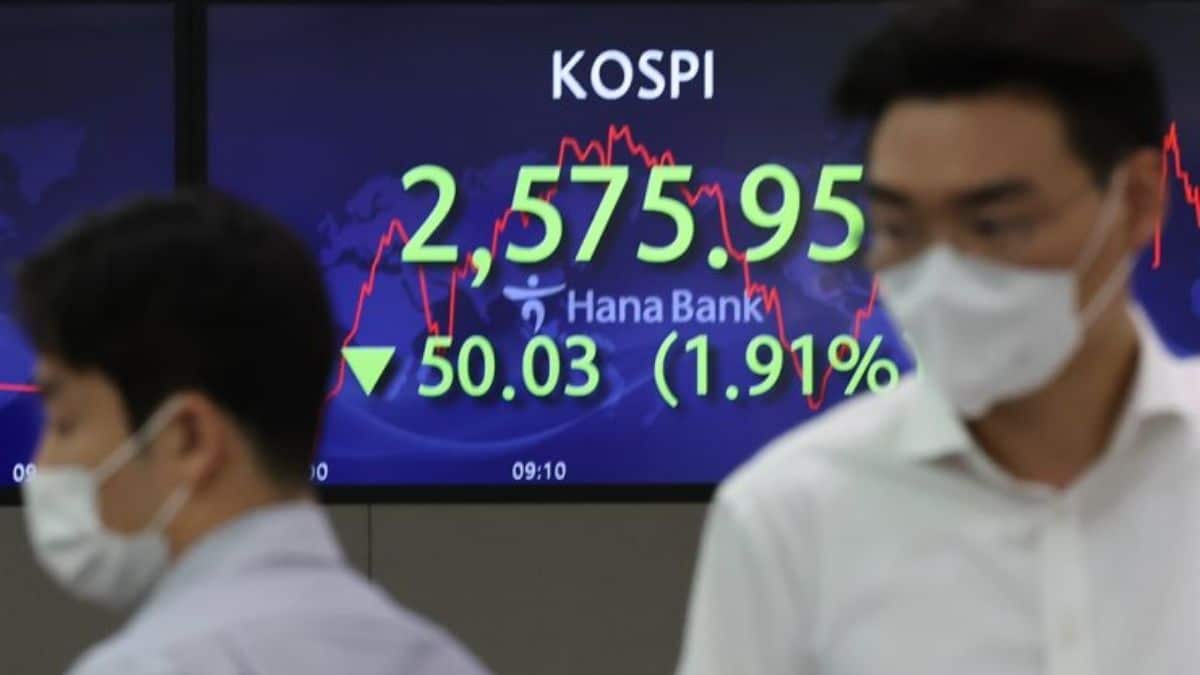South Korea’s KOSPI index plummeted by over 8%, reflecting a broader global sell-off fueled by growing fears of a potential U.S. recession. This significant decline, the steepest in recent memory, underscores the heightened anxiety among investors about the health of the American economy and its ripple effects worldwide.
The sharp downturn in the KOSPI was triggered by a dismal U.S. jobs report for July, which revealed a mere addition of 114,000 jobs and an uptick in the unemployment rate to 4.3%. These figures fell far short of expectations, casting a shadow over the economic outlook and sparking concerns that the Federal Reserve’s prolonged high interest rates might push the economy into a recession.
The KOSPI’s plunge was not an isolated incident; it mirrored a widespread market retreat. The Dow Jones Industrial Average dropped 2.3%, the S&P 500 fell 2.2%, and the Nasdaq Composite slid 2.4%. In Asia, Japan’s Nikkei 225 also experienced a significant loss, tumbling 5.8% due to a stronger yen and the Bank of Japan’s recent rate hike, which further dampened market sentiment.
European markets were similarly affected, with major indices such as London’s FTSE 100, Paris’s CAC 40, and Frankfurt’s DAX all recording substantial losses. The broader Euro STOXX 50 index fell 2.7%, highlighting the pervasive uncertainty across the continent.
Adding to the market’s woes were disappointing earnings reports from major U.S. technology companies and ongoing uncertainties about future Federal Reserve actions. Despite positive signs in the second-quarter GDP report and housing data, the weak jobs report has amplified fears of a looming recession. Investors are bracing for continued volatility as they navigate these complex economic signals. Analysts predict that the markets will remain turbulent in the coming months as the global economy grapples with these challenges.

